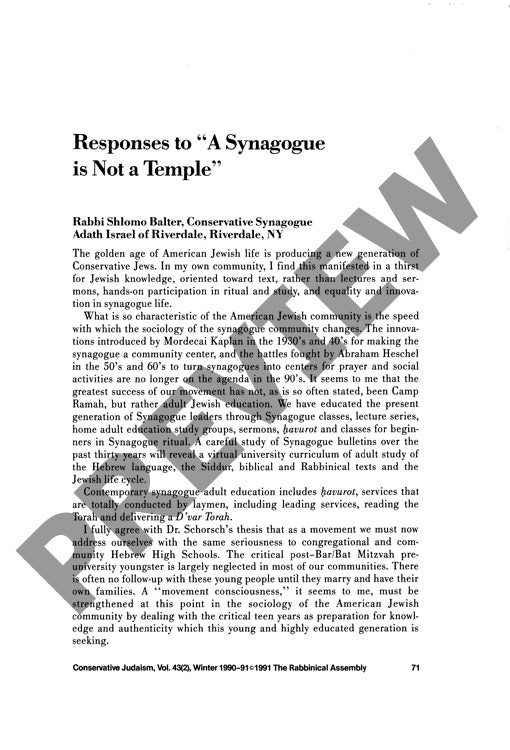Responses to a Synagogue Is Not a Temple
Couldn't load pickup availability
Conservative synagogues in 1990s America faced a pivotal challenge: how to balance traditional Jewish observance with mounting pressures for reform and modernization. Following Chancellor Schorsch's provocative address "A Synagogue is Not a Temple," five Conservative rabbis from diverse regions across North America - spanning New York to Ontario - offered revealing perspectives on their communities' religious evolution. Qualitative analysis of their responses demonstrates that while adult Jewish education emerged as the movement's greatest achievement, with robust programs in Hebrew, liturgy, and textual study, synagogues struggled to maintain regular Shabbat attendance and foster meaningful prayer experiences beyond lifecycle events. Geographic location significantly influenced congregational practices, with some communities successfully preserving traditional observance while others adapted to assimilation pressures. Rabbis grappled with a fundamental tension between offering multiple service formats to accommodate diverse needs and maintaining communal unity. Though synagogues succeeded in establishing themselves as vital centers for Jewish identity and social action, they faced persistent limitations in counteracting secular cultural influences. The evidence suggests that while Conservative synagogues have largely abandoned temple-like formality in favor of participatory worship, they continue to wrestle with core questions about their capacity to nurture sustained Jewish commitment among modern American Jews.

More Information
-
Physical Description
-
Publication Information
Published 1990-1991
ISBN
-
Publication Credits
Shlomo Balter

